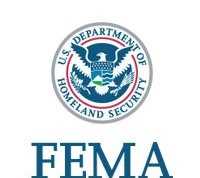EPA Completes Nine Agreements to Settle Clean Water Act Violations from Biosolids Land Application in 2019
WASHINGTON (December 19, 2019) – RealEstateRama – The U.S. Environmental Protection Agency (EPA) announced that it completed nine federal enforcement actions in 2019 to settle Clean Water Act violations that resulted from land application of biosolids.

“When sewage sludge is properly processed and treated, the resulting biosolids can be used as a fertilizer,” said EPA Office of Enforcement and Compliance Assurance Assistant Administrator Susan Bodine. “EPA protects human health and the environment by ensuring that proper procedures are followed and by enforcing against violators.”
The violations addressed by these settlements include the land application of biosolids when pathogens, such as e. coli and salmonella, and heavy metals, such as cadmium, lead, nickel and molybdenum, exceeded limits. Compliance with pathogen reduction requirements and metals concentration limits are important for protecting human health and the environment. Municipalities and land appliers run the risk of significant penalties for applying biosolids in violation of the Clean Water Act.
EPA’s enforcement actions ensure the biosolids meet appropriate limits for use on crops and in fields where livestock graze, and that compost that consumers buy at their local hardware store is appropriate to use in their garden. These EPA actions also help to ensure that stormwater runoff from fields treated with biosolids do not impact lakes and rivers.
The following facilities paid a total of $169,588 in penalties for biosolids violations in 2019:
Troy, Alabama – paid a $50,000 fine for applying biosolids to land that contained lead in excess of limits.
Montgomery, Alabama – paid a $32,000 fine for applying biosolids to land that contained nickel in excess of limits.
Veris Environmental Inc. in Limon, Colorado – paid a $11,000 fine for applying biosolids to land that contained molybdenum in excess of limits.
Henry County Georgia – paid a $25,000 fine for applying biosolids to land that contained fecal coliform in excess of limits and applying biosolids in excess of calculated agronomic rates.
Jefferson, Iowa – will pay a $13,900 fine for applying biosolids to land that contained arsenic in excess of limits, failed to monitor the biosolids as required and failed to report as required.
Salina, Kansas – paid a $15,188 fine for applying biosolids to land that contained molybdenum in excess of limits and to perform a Supplemental Environmental Project at a projected cost of $60,000.
Wentzville, Missouri – will pay a $7,700 fine for applying biosolids in excess of calculated agronomic rates.
Cozad, Nebraska – paid a $6,500 fine for applying biosolids to land that contained molybdenum in excess of limits.
Newport, Tennessee – paid a $8,300 fine for applying biosolids to land that contained molybdenum in excess of limits.
Background:
Enforcement actions require alleged violators to come into compliance with the law, which includes improving operational controls, and, in these cases, paying penalties. In determining the appropriate civil penalty amount, the agency considers the severity of the violations, a violator’s ability to pay, and other factors.
Starting in 2017, facilities that produce, manage or dispose of biosolids that are required to submit an annual biosolids report are to do so electronically. These reports are due by Feb. 19 each year. By collecting the data electronically, the public has readily available access to the information about biosolids disposal in their area.
In 2018, 1,342 facilities reported land applying over 2 million tons of biosolids, and incinerating over 664,000 tons. Biosolids can also be used as daily cover at landfill, stored or used in construction materials.
Municipal wastewater treatment facilities produce sewage sludge. When that sewage sludge is properly processed and treated, the resulting biosolids are a nutrient-rich organic material that can be used as a fertilizer.
Learn more about EPA’s enforcement of the Clean Water Act
Learn more about EPA’s Biosolids Program
Learn more about Biosolids Disposal in your area
Members of the public can help protect our environment by identifying and reporting environmental violations. Learn more here: https://www.epa.gov/enforcement/report-environmental-violation-general-information.
Contact Information:
EPA Press Office ()















